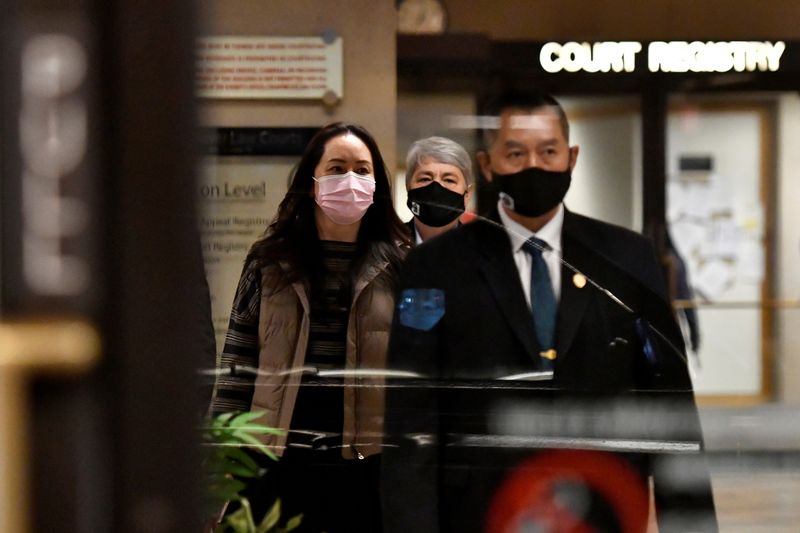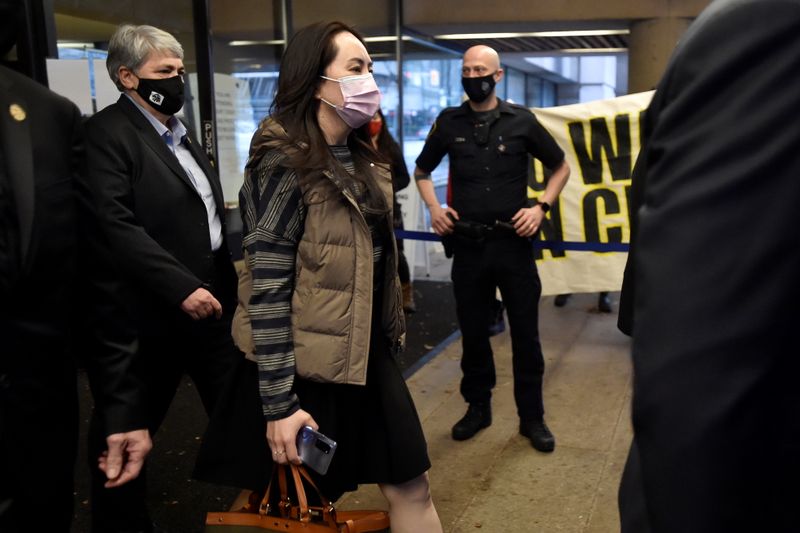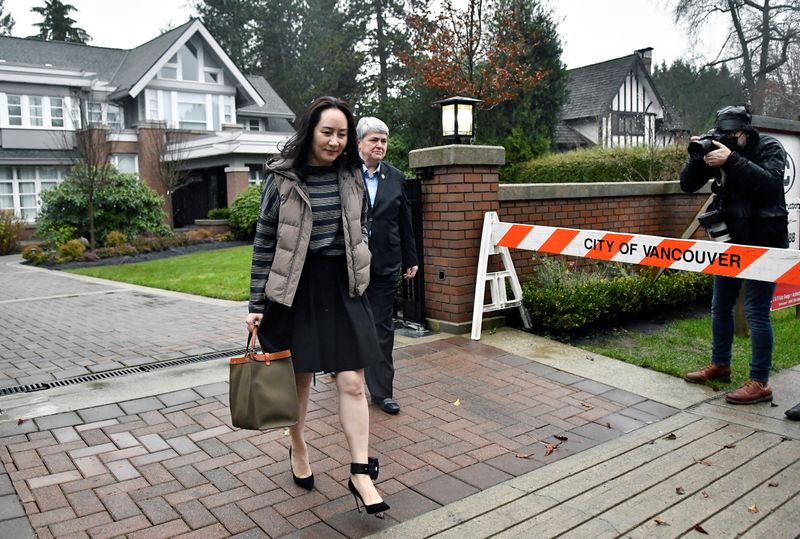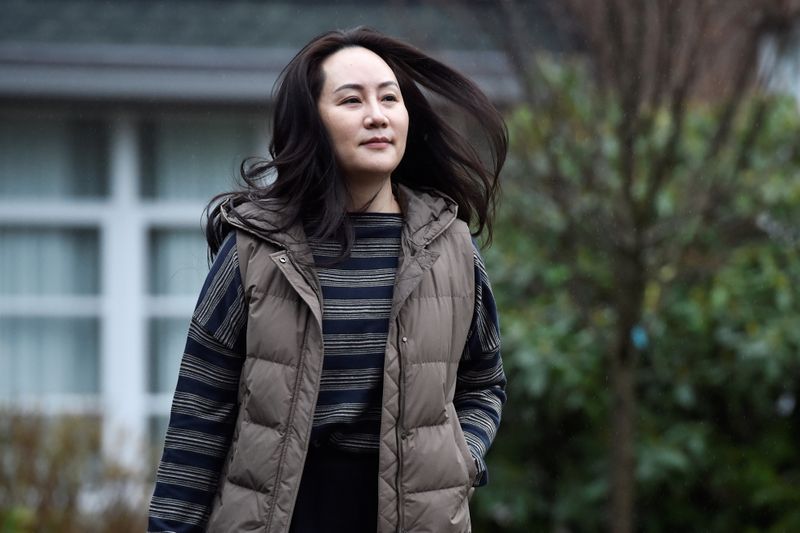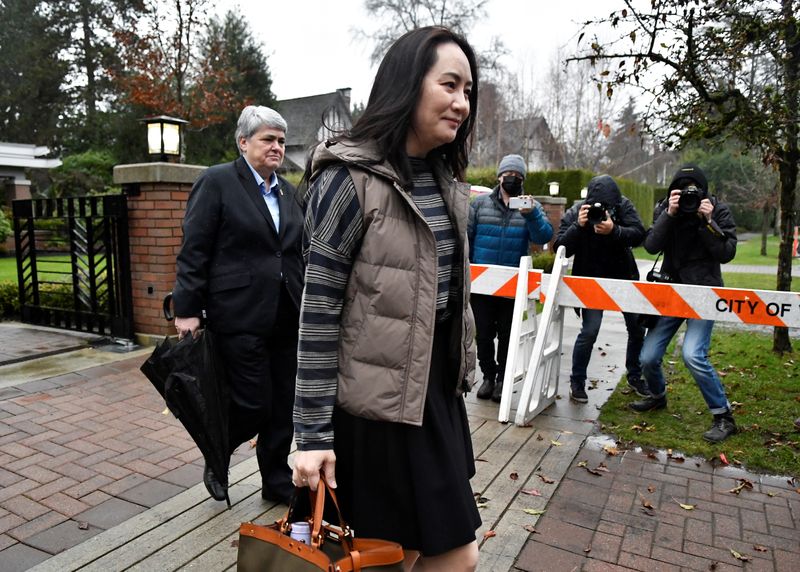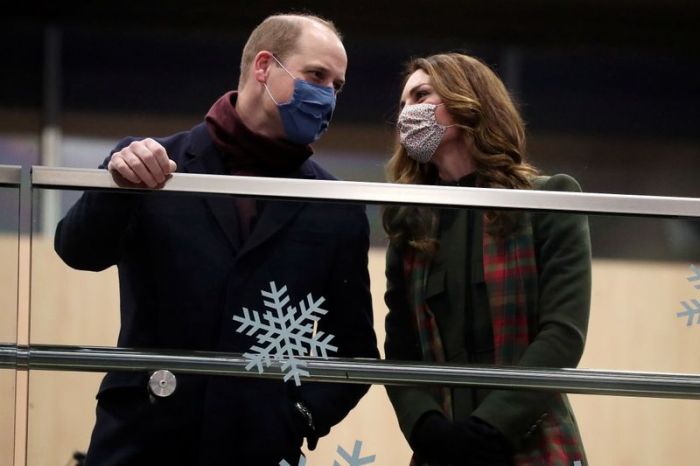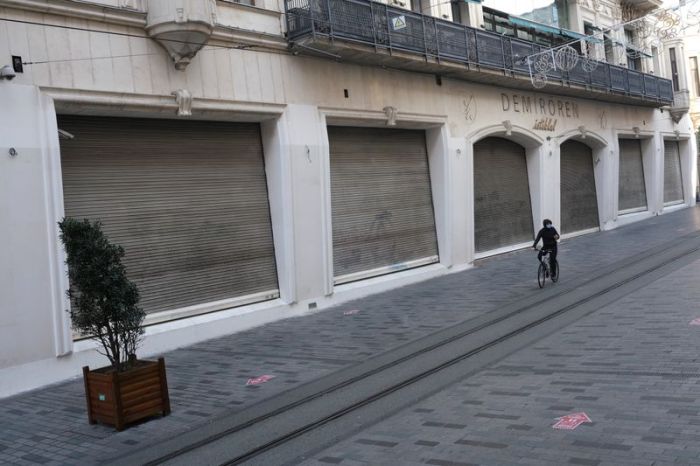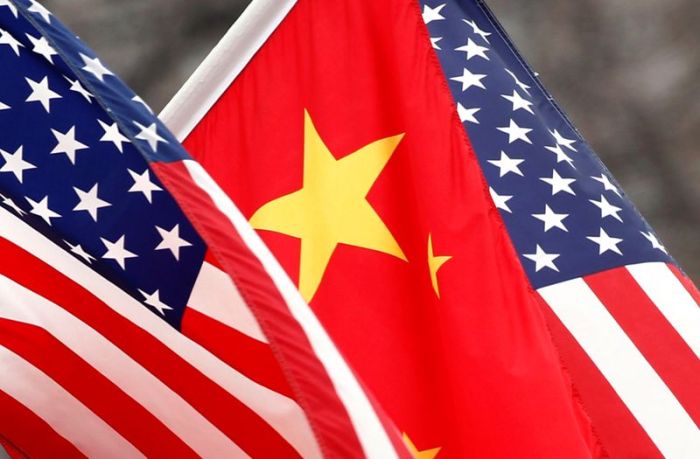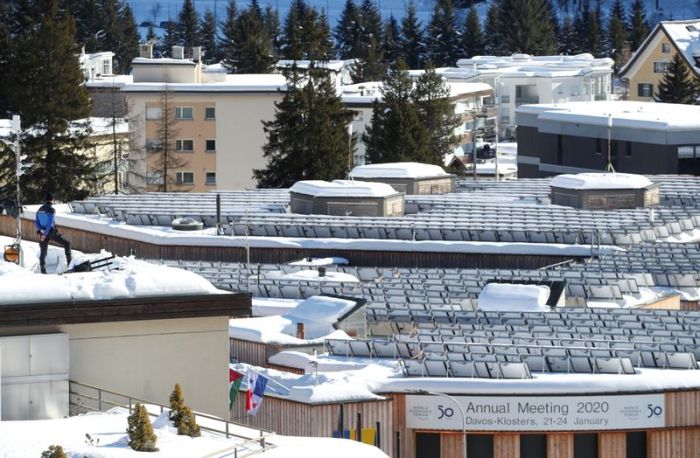VANCOUVER (Reuters) – A police officer stationed at Vancouver’s airport on the day Huawei Chief Financial Officer Meng Wanzhou was arrested two years ago testified on Monday he found himself to be in a “very uncomfortable position” as the point of contact for the U.S. Federal Bureau of Investigation (FBI).
Meng, 48, returned to the British Columbia Supreme Court on Monday for the final week of witness cross examinations as part of her U.S. extradition case, amidst news last week that her lawyers and the United States prosecutors held talks to reach a deal that could see her release and return to China.
“At the end of the day, I’m not there to provide information and act on behalf of the FBI. I’m there working as an RCMP member,” Royal Canadian Mounted Police (RCMP) Sergeant Ross Lundie testified.
“Assisting the FBI, given my background – this is a very uncomfortable position to be in,” he added.
Meng was arrested in December 2018 on a warrant from the United States. She is facing charges of bank fraud for allegedly misleading HSBC Holdings Plc about Huawei Technologies Co Ltd’s business dealings in Iran, causing the bank to break U.S. sanctions.
She has said she is innocent and is fighting the extradition from under house arrest in Vancouver. Her lawyers have argued that her extradition should be thrown out based on abuses of process during her investigation and arrest, including inappropriate coordination between U.S. and Canadian authorities.
They have also claimed the case has been politicized to the point where Meng would not receive a fair trial in the United States, pointing to comments made by President Donald Trump in an interview with Reuters in December 2018 about his willingness to use Meng as a bargaining chip in trade talks with China.
U.S. prosecutors are discussing a deal with lawyers for Huawei’s Meng to resolve criminal charges against her, a person familiar with the matter said on Thursday, signaling a potential end to a case that has strained ties between the United States, China and Canada.
Lundie testified two weeks ago that he received at least two calls from FBI officials during Meng’s investigation and arrest.
He also told the court in previous testimony that the Canada Border Services Agency (CBSA) should be allowed to conduct their examination of Meng first, despite a strong suggestion to the contrary from head office.
On Monday Lundie testified that he was concerned about the appearance of collusion between the CBSA and the RCMP in the lead up to Meng’s arrest. He told the court it was “reasonable” for CBSA to secure Meng’s electronic devices in Mylar bags – which block all signals – before the RCMP arrested her.
Lundie denied that the move by CBSA blurred the lines between RCMP and CBSA investigation because the devices were never searched. “I viewed it as being reasonable,” Lundie said. “Nothing else was happening with those phones.”
In previous weeks of witnesses’ cross examinations, officials from CBSA and RCMP testified that the process leading up to Meng’s investigation and arrest was rushed but by the book.
Prosecutors are arguing that Meng’s extradition is valid and procedures were followed.
Meng’s arrest caused a chill in diplomatic relations between Ottawa and Beijing. Shortly after Meng was detained, China arrested two Canadian men – Michael Kovrig and Michael Spavor – who now face spying charges.
On Friday, Canadian Prime Minister Justin Trudeau said the release of the two Canadians was his “top priority,” while declining to comment on the talks to release Meng.
Meng’s case is scheduled to wrap up in April 2021.
(Reporting by Sarah Berman in Vancouver and Moira Warburton in Toronto; Editing by Denny Thomas, Lisa Shumaker and Michael Perry)

